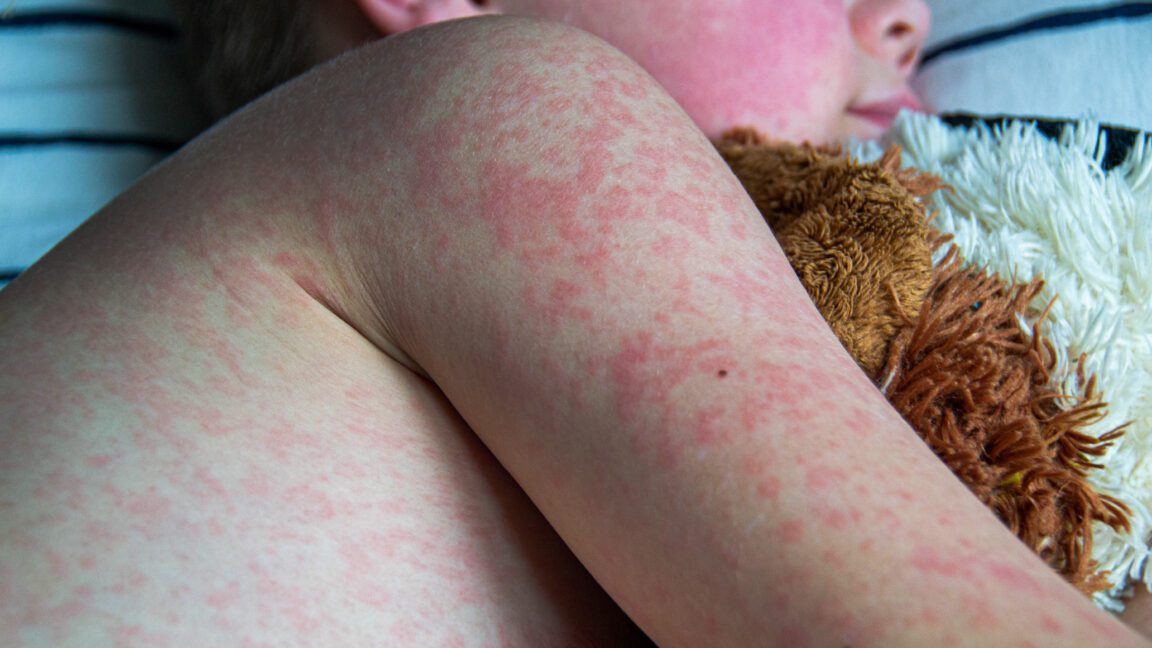
Several counties in Texas are experiencing measles cases, with specific counts as follows: Dawson (6 cases), Ector (1), Lubbock (1), Lynn (1), Terry (20), and Yoakum (4).
The majority of reported cases in Texas involve children, with 26 cases found in infants and toddlers aged 0 to 4, and an additional 51 cases among those aged 5 to 17. Notably, nearly all these cases—except for five—occurred in individuals who were not vaccinated. Approximately 18 percent of affected individuals, totaling 16 people, have required hospitalization.
In neighboring New Mexico, the situation differs slightly, as there have been no hospital admissions linked to the nine reported cases. Among these, five cases involve adults, while the remaining four cases affect children aged 5 to 17.
Due to the region’s low vaccination rates and the highly contagious nature of measles, health authorities anticipate that the outbreak may expand further. Measles stands out as one of the most transmissible viruses; around 90 percent of unvaccinated individuals who come into contact with the virus are likely to contract the illness. The infection is characterized by high fevers and a distinctive rash and can lead to serious complications, particularly in young children.
On average, in the United States, about 20 percent of those infected with measles end up hospitalized. Roughly 5 percent develop pneumonia, and the fatality rate can reach as high as 3 in 1,000 cases. Moreover, in rare circumstances, measles can result in a life-threatening central nervous system condition known as Subacute sclerosing panencephalitis later in life. Additionally, measles can have far-reaching effects on the immune system, impairing the body’s ability to respond to other infections—a phenomenon termed immune amnesia—thereby increasing susceptibility to various illnesses.









